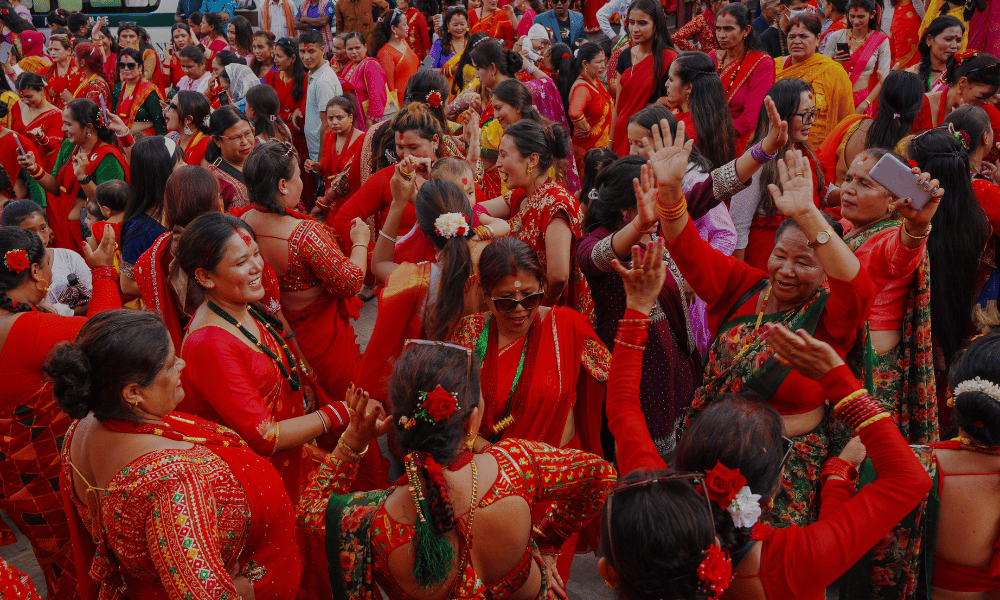 The Nepal Weekly
The Nepal Weekly  August 12, 2025
August 12, 2025
The great festival of Hindu women, Teej, is just arriving. On the day of Bhadra Shukla Tritiya, it is celebrated by observing the Haritalika fasting and worshipping Lord Shiva. Teej is an important festival for Nepali women. It is considered as a form of expression through songs, conveying the joys and sorrows of life. As a significant festival of devotion to Lord Shiva, it has been celebrated in Nepal since ancient times. However, the tradition of celebrating Teej, which carries deep cultural heritage, has been undergoing changes day by day.
Nowadays, Teej is celebrated as an important festival not only in cities and towns but also in villages and even abroad. Almost a month before Teej arrives, its musical atmosphere is already set and demand is high, and it becomes a good opportunity to earn income. Therefore, singer start preparing songs two to three months before Teej. This year, Teej songs began to be released on YouTube from the last week of Jestha. By Thursday, around three hundred and fifty Teej songs had already been released and some creators are still preparing to release their songs.

Sweet and meaningful folk songs once sung during Teej are rarely heard these days. The heartfelt emotions of women, the pleasant melodies, the expressions of personally experienced pains, and the weaving of those very feelings into creations that conveyed to listeners the joys and sorrows, happiness, surprises, hopes, and disappointments of life are now being presented in a light and overly flamboyant manner. Songs carrying traditional significance can now only be heard on YouTube, while their creation has largely stopped. However, under the name of modern times, this musical culture has been gradually deteriorating. Some Teej songs have now become so distorted that they can no longer be viewed through the lens of culture, history, and tradition. Many people comment that the music videos are not suitable to watch together with family.
New singers, hoping to establish themselves, seem to be releasing such songs in the market under the pretext of meeting the demands of the time. Some organizations have begun lobbying to ban songs that use vulgar language. However, such songs have not been removed from social media and YouTube. Some music producers have reuploaded them after making corrections, and there have also been reports of some musicians issuing apologies.
Why is Teej celebrated?
According to Hindu tradition, Teej marks the day when Goddess Parvati was reunited with Lord Shiva after years of penance and devotion. She prayed and fasted to win him as her husband, making the festival a symbol of marital devotion and love. Married women fast and pray for their husband’s long life and prosperity, while unmarried women pray to get a good husband like Shiva.